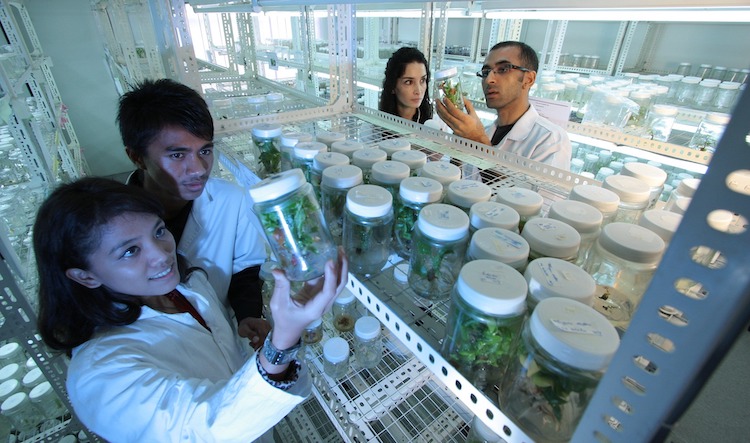Tarryn Bourhill, Communications, Education & Outreach Editor
Do I stay or do I go? It sounds like a bad pop song. Unfortunately, this is a common conundrum many graduate students face. Knowing if and when to transition out of an academic career is difficult and we’ve all faced that existential crisis as it builds and a flood of questions breaks out: Where would I go? Who is going to hire me? Am I doing the right thing? What else can I do? I’m trained to be a scientist!
Ironically, as academics, we don’t tend to approach career exploration and mapping with our logical scientific minds. When I started my PhD, I wanted to stay in academia and become a scientist. When I realized that the likelihood of tenure was really small, I embarked on a lengthy career-exploration process.
I’d like to share some tips I’ve learnt along the way about the art of the pivot. I also spoke with two experts to get their perspective on career pivoting. Kirsten Grant successfully transitioned out of her Master’s program, where she specialised in biogeochemistry, into a position as a project coordinator for the Lake Futures Project at the University of Waterloo (and is a General Sciences editor with scienceborealis.ca). She chose this career path over pursuing a PhD. Professor Derrick Rancourt is a stem cell biologist at the University of Calgary who advocates helping students to transition out of academia. Full disclosure: Derrick is my current supervisor and the person I initially went to for advice about this post.
Alternate Careers
After I got over the realization that only 18 per cent of graduates in the life sciences get tenure track positions, I had to figure out what I wanted to do after graduate school. I did what any good scientist would do: I started with research. I had no idea what was available to me so I googled it and asked for help. The tricky part was refining the search to careers that were relevant to me by considering what my interests, values and life priorities were. For me, this was the hardest part of my search – knowing what I wanted out of life and realizing just how my priorities had changed.
Thankfully, tools are available that can help. Blogs like the Cheeky Scientist that list alternate careers can be a great place to start, and Science Careers’ MyIDP (individual development plan) is a site designed to help PhDs and post docs understand their values and set career goals. The Career Services Office on your campus is your friend: it may offer additional tests to help you understand your interests and priorities.
Derrick advises, “Start early, start networking and career exploration early. Go through the process of refinement. Dovetail your education and training with your exploration. One of the coolest things is to learn more about yourself in the process. As you learn more about yourself, you begin to become more discriminating about what you can do for your future.”
Informational Interviews
You’ve narrowed down your options and decided on a couple of careers that look appealing to you. How do you make the final decision? Unfortunately, Internet research will only get you so far. If you want a genuine understanding of what a career involves, talk to someone who has the position you want.
Informational interviews are conversations with professionals during which you ask for career advice. They are not job interviews and you are not asking for a position. They are fact-finding missions. As Kirsten Grant put it, “I just wanted to hear about cool jobs and it was really interesting hearing other people’s perspectives.”
How do you find a professional to talk to? LinkedIn is a fantastic resource for finding people: you can search for someone in your network or you can find someone on your university alumni page. As scary as it sounds, it is OK to go in cold. Find someone online and send them an email, mention why you are interested in talking to them and why the career interests you. “It was so easy to do (informational interviews). What is the worst that could happen? They may not reply or say sorry I’m too busy and nothing happens,” says Kirsten.
Another great approach to getting help is playing the student card. When approaching someone, mention that you are a student – you’d be surprised at how many professionals are willing to help students out. They were once students, too, and know what you’re going through.
Networking
You’ve decided on a career! Now, how do you get a job? Networking is critical for career development. The vast majority of available positions are never advertised – and you can access that hidden job market only by networking.
Networking isn’t as slimy as you may think. According to Kirsten, “Networking is perhaps one of the most valuable things you can do. It doesn’t have to be so formal, it can be the day-to-day interactions with people, and you want to leave a positive impression.”
As students, we often downplay our importance, but we have a lot to offer. When connecting with professionals, supervisors or other students, you are giving them access to your connections and knowledge. The value you provide can be as simple as an introduction to your supervisor or as complex as your opinion on what is happening in your field. When I realized I could potentially help the people I was talking to, networking became a lot easier for me.
To be honest, networking is not about making a million connections at a conference or networking event. It’s about making genuine connections and it can take place in unexpected ways. Being helpful and approachable to your peers and lab mates is networking. Informational interviewing and volunteering are also forms of networking.
And you can do it online. As Derrick points out, “Social media and networks are a better approach to networking, where you can look people up in a specific context. Do it through social media, you still need to learn how to talk to people but the ick factor isn’t as bad when you have an express[ed] purpose for meeting someone. It could be pitching an idea or informational interviewing. Anything.”
Transferable skills
You’ve networked and you’ve been asked for a resume. Now what? Transferable skills, not just technical skills, should be highlighted on your resume and during your job interview. The good news is you already have a lot of transferable skills as a graduate student. Project management, communication, teamwork, work ethic, self-management and leadership are a few examples. The difficulty we face when transitioning is that we have to make it clear to potential employers how and where we developed these skills. This is called the skills-awareness gap.

Transferable skills such as teamwork and communication are an integral part of graduate school. Remember to mention them to employers. Source: Pixabay, CC0
Derrick says: “The skills awareness gap is where industry doesn’t understand academia. They don’t understand the competencies we develop in graduate school that could be useful to their organization. Graduate students don’t know how [to] sell themselves to industry based on the competency needs of the organization.”
What helps is giving concrete examples of when you use these skills. These examples can come from your time in graduate school or they can stem from volunteer work or work experience. If you’ve taken courses or workshops to develop these skills, highlight them. Mitacs offers free courses to students, on subject ranging from communications to project management.
Kirsten concurs. “I had examples I could lean back on to demonstrate my skills – some of them were from graduate school and some were extracurricular.”
Leaving does not make you a failure!
Transitioning out of academia is difficult, particularly for PhD students. Leaving academia is often seen as a failure by the university establishment. The truth is graduate students abandon academic careers for entirely respectable reasons such as wanting to have an immediate impact on society, family-oriented work hours, better pay, and job security. It all boils down to what you want out of life and what your priorities are. The best piece of advice I got about my career was that it was for me, and the only person I had to please was myself.
Kirsten is a case in point. She revealed that “[she] liked the research environment, where people were talking and thinking about science and pushing bigger ideas forward. [She] didn’t enjoy the figures and data analysis. [She] preferred stakeholder engagement.”
So what can you be with your graduate degree? That is entirely up to you.
And now you have a rational way to find out.
~30~
What have your experiences been transitioning out of academia? What did you learn? What did you find most helpful in the process? Post a comment and let us know!







Hi There,
Your Blog is very interesting and knowledgeable. Keep doing good work.
The knowledge you share really helpful. I sincerely thank you for what you have done, surely your blog will help more people.